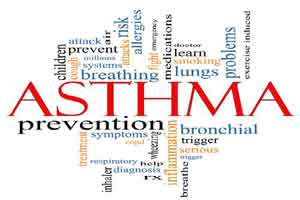- Home
- Editorial
- News
- Practice Guidelines
- Anesthesiology Guidelines
- Cancer Guidelines
- Cardiac Sciences Guidelines
- Critical Care Guidelines
- Dentistry Guidelines
- Dermatology Guidelines
- Diabetes and Endo Guidelines
- Diagnostics Guidelines
- ENT Guidelines
- Featured Practice Guidelines
- Gastroenterology Guidelines
- Geriatrics Guidelines
- Medicine Guidelines
- Nephrology Guidelines
- Neurosciences Guidelines
- Obs and Gynae Guidelines
- Ophthalmology Guidelines
- Orthopaedics Guidelines
- Paediatrics Guidelines
- Psychiatry Guidelines
- Pulmonology Guidelines
- Radiology Guidelines
- Surgery Guidelines
- Urology Guidelines
Food allergies linked to higher asthma risk in kids: Study

New York : The higher the number of food allergies a child might have, the greater is his or her risk of developing asthma and allergic rhinitis during childhood, new research has found.
"Of the major food allergens, allergy to peanut, milk and egg significantly predisposed children to asthma and allergic rhinitis," said lead researcher David Hill from The Children's Hospital of Philadelphia (CHOP) in the US.
The study is a retrospective analysis of the electronic health records of more than one million urban and suburban children in the CHOP Care Network from 2001 to 2015.
The researchers divided the records into two cohorts a closed-birth cohort of 29,662 children, followed continuously for their first five years of life, and a cross-sectional cohort of 333,200 children and adolescents, followed for at least 12 months.
The researchers found that children with existing food allergy were at increased risk of developing asthma and allergic rhinitis.
"For patients with an established diagnosis of food allergy, 35 percent went on to develop asthma; and patients with multiple food allergies were at increased risk of developing asthma as compared to those with a single food allergy," senior author Jonathan Spergel from The Children's Hospital of Philadelphia noted.
"Similarly, 35 percent of patients with food allergy went on to develop allergic rhinitis," Spergel noted.
These asthma and allergic rhinitis rates in children with food allergy were roughly double the rates found in the general population, showed the findings published in the journal BMC Pediatrics.
Children’s Hospital of PhiladelphiaCHOPDr David HillDr Jonathan Spergelfood allergiesjournal BMC Pediatricsmultiple food allergies
Source : IANSNext Story
NO DATA FOUND

Disclaimer: This site is primarily intended for healthcare professionals. Any content/information on this website does not replace the advice of medical and/or health professionals and should not be construed as medical/diagnostic advice/endorsement or prescription. Use of this site is subject to our terms of use, privacy policy, advertisement policy. © 2020 Minerva Medical Treatment Pvt Ltd